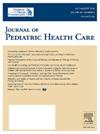高学历流动家庭屏幕使用与学龄前儿童社会情绪问题的关系:一项为期一年的随访研究。
IF 2.5
4区 医学
Q2 HEALTH POLICY & SERVICES
引用次数: 0
摘要
前言:本研究调查了来自流动家庭的46 ~ 72个月学龄前儿童屏幕使用与社会情绪问题的关系。方法:对427名儿童家长进行年龄阶段问卷:社会情绪II (ASQ: SE II)和T1、T2两个时间点(间隔1年)的屏幕使用情况调查。结果:学龄前儿童的社交情绪问题和屏幕使用在一年内无显著变化。学龄前儿童在第一阶段每天看屏幕超过1小时,在第二阶段出现社交情绪问题的风险会增加。那些在第一阶段有父母参与的孩子在第二阶段出现社交情绪问题的风险降低了。那些在第一阶段观看教育内容的人在第一阶段和第二阶段之间出现社交情绪问题的风险降低了。讨论:这些发现强调了屏幕使用的保护因素和风险因素独立预测了高学历移民家庭儿童的社会情感问题。本文章由计算机程序翻译,如有差异,请以英文原文为准。
The Relationship Between Screen Use and preschoolers' Social-Emotional Problems Among Highly Educated Migrant Families: A One-Year Follow-Up Study
Introduction
The present study investigated the relationship between screen use and social-emotional problems in preschoolers aged 46 to 72 months from migrant families.
Methods
The parents of 427 children completed the Ages and Stages Questionnaire: Social Emotional II (ASQ: SE II) and the survey on screen use at two time points (T1 and T2) with one-year interval.
Results
There were no significant changes in preschoolers' social-emotional problems and screen use over one year. Preschoolers who exceeded 1 hr per day on screens at T1 increased the risk for social-emotional problems at T2. Those who had parental involvement at T1 reduced the risk for social-emotional problems at T2. Those who viewed educational content at T1 reduced the risk for social-emotional problems between T1 and T2.
Discussion
These findings highlight the protective and risk factors of screen use independently predicted children's social-emotional problems from highly educated migrant families.
求助全文
通过发布文献求助,成功后即可免费获取论文全文。
去求助
来源期刊

Journal of Pediatric Health Care
NURSING-PEDIATRICS
CiteScore
3.40
自引率
10.70%
发文量
140
审稿时长
24 days
期刊介绍:
The Journal of Pediatric Health Care, the official journal of the National Association of Pediatric Nurse Practitioners, provides scholarly clinical information and research regarding primary, acute and specialty health care for children of newborn age through young adulthood within a family-centered context. The Journal disseminates multidisciplinary perspectives on evidence-based practice and emerging policy, advocacy and educational issues that are of importance to all healthcare professionals caring for children and their families.
 求助内容:
求助内容: 应助结果提醒方式:
应助结果提醒方式:


